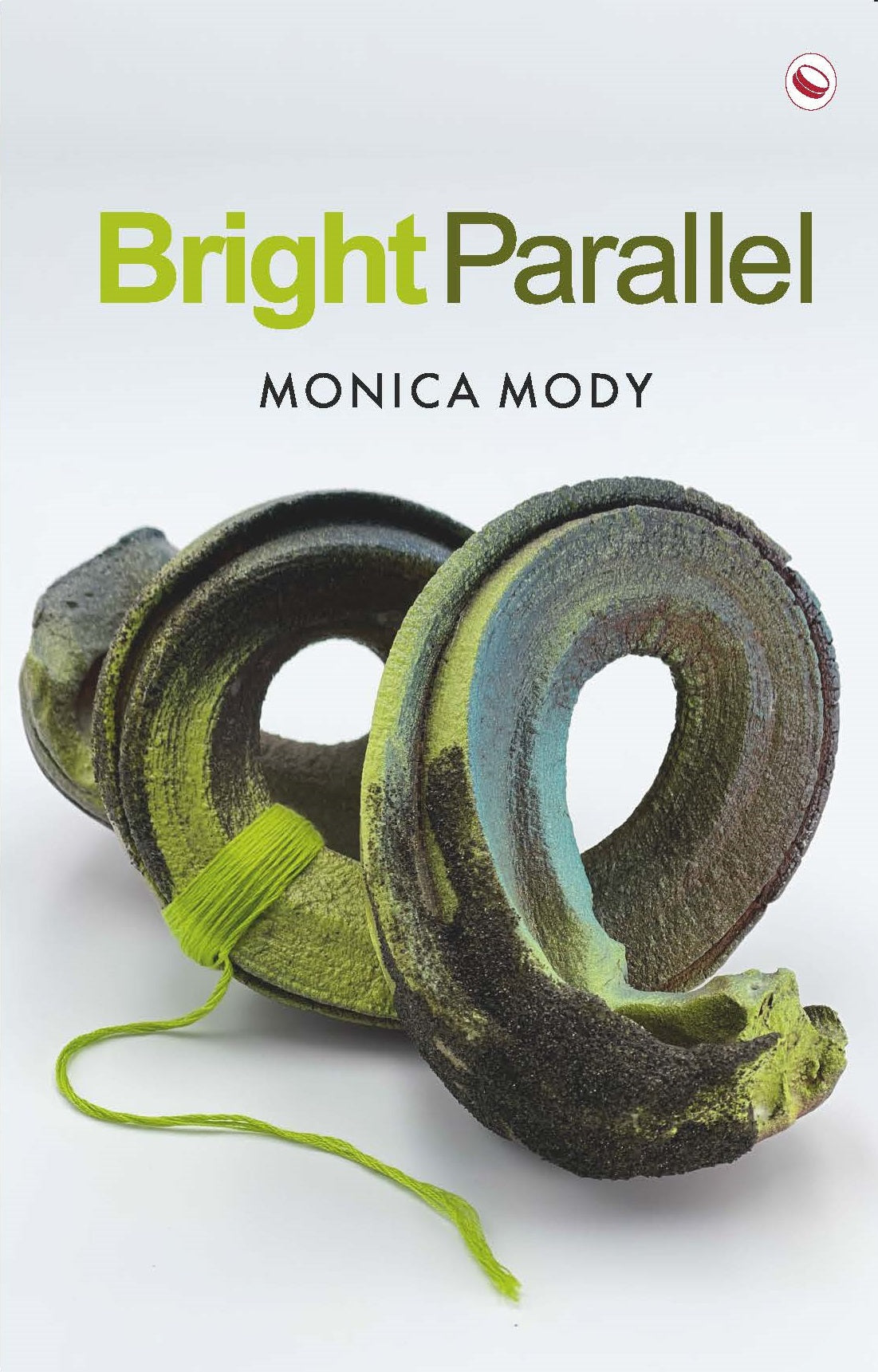Bright Parallel
Bright Parallel
Couldn't load pickup availability
Everywhere inside this book I found soil—living, dying, composting, growing, resting, and restless. I emerged from every page with some of it in my hands. In these poems, as intimate as whispers, Monica Mody digs into thoughts and emotions that will touch you, like soil does, always.
Sumana Roy
Language bare as a rock, yet rich with the memory of ancestral call and body response, Monica Mody’s poems hold me steady through peril.
Jeet Thayil
‘Can we fall into longing when even to cry is forbidden?’ In the light of constraint and cruelty, Monica Mody shows us, through her poems, ways to believe in the ‘even so…’ Despite trauma, despite time’s devilry, there will be the miracle of song, beyond the ‘rhythm of sonic’, an intense keening that heals, harmonizes, reclaims and restores. She knows through skin, through mind, through blood that ‘metaphors are tired & doled with shame’. And so, she sidewinds, she shadowns, she finds ways of feinting that will stake all. Where once she might have ‘stayed home / stayed safe / stayed between languages like an old sheet’ what persists is the pursuit of the unsafe on the precipice of meaning. Every syllable counts. From the particle comes the particular. Mody’s attunement to the natural world is precise, with room for both ‘mineral root’ and ‘whale praise’; a shocking openness to the elemental so that we, too, can imagine being flooded with the ‘courage of constellations’. Her feministic enquiry is utterly embodied; she cries ‘Are there only patriarchs in the sky’; she draws all to the brink of the motherpool. As a poet and an editor, I respond with admiration to her craft; her ability to straddle the intuitive and the intellectual, the spiritual and the earthly with linguistic limberness. As a reader and a friend, I warm my hands—and my heart—in the blaze and crackle of her words.
Sampurna Chattarji
Monica Mody’s poems embody a passionate commitment to the living tradition of women’s wisdom – which, though living, is subterranean, endangered since the onset of the Enlightenment, with its rationalist dogmas and investment of authority in patriarchal structures of sanction. In Mody’s poetry, the language of the present is infused with the effulgent presence of ancestral spirits; sentences are transmuted into incantations to the elements, construed as enriching contexts that summon us to inhabit them with care and generosity, and to curtailed dimensions of psychic life.
Mody proposes an expansion of consciousness across species and topographies, a sense of connectedness with all things. She carries us along mythic continuities that have survived historic ruptures, always returning to the first moment when words assume shape. To her, the act of composing poetry is invested with the sacred energy of replenishment, and retrieves the deep shamanic heritage of hymn, chant, prayer and dithyramb. The voices we hear in Bright Parallel invite us to attend to the call of other beings, the call of things. These are the voices of oracles, priestesses, witches, guardians of spring, flame, shrub and tree. They offer us belonging rather than alienation, enchantment rather than despair.
Ranjit Hoskote
Share


